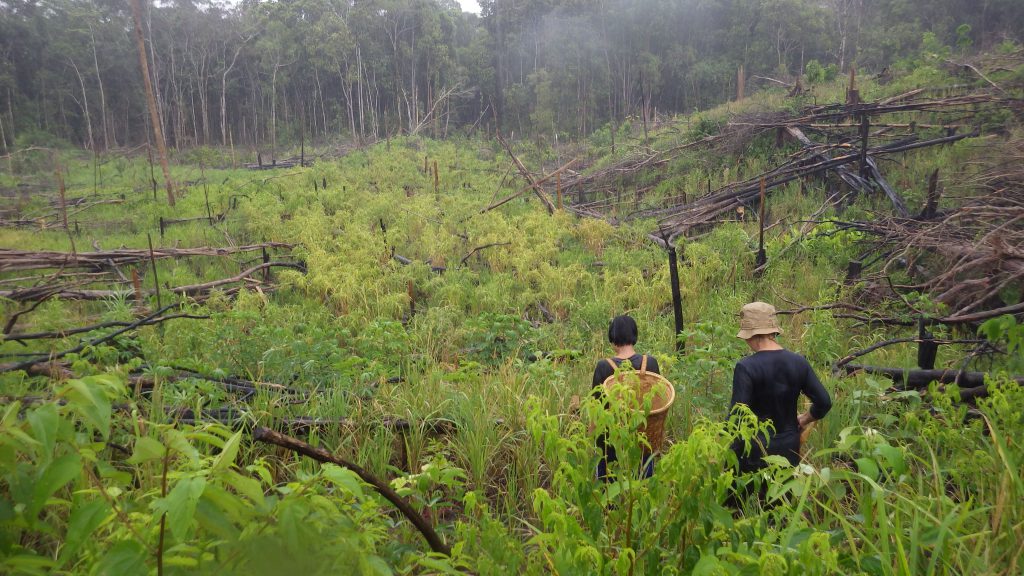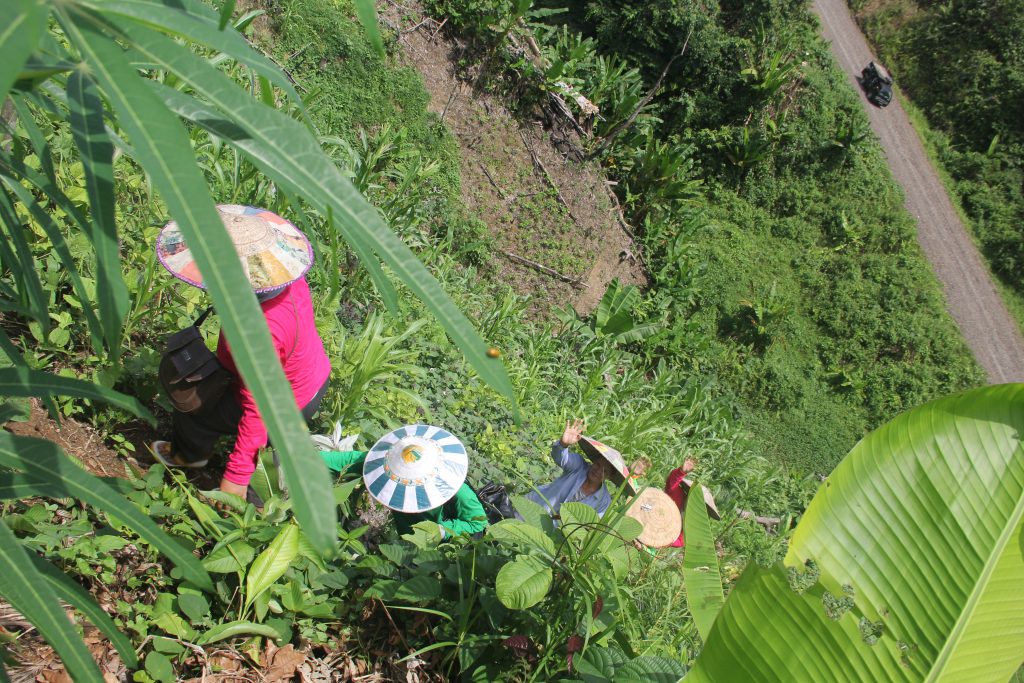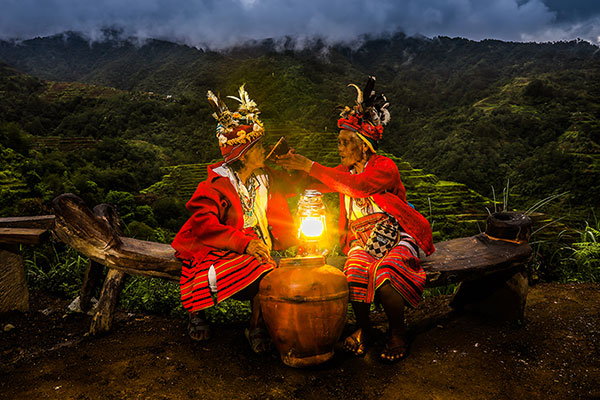By Cristina Eghenter
Many stories of women’s traditional roles in biodiversity and agriculture are yet to be told. The limited visibility of women in policy and decision-making spaces related to natural resource governance and biodiversity is also mirrored in how their roles, knowledge and care for the land and its resources are often overlooked in many narratives.
Gendered spaces exist, but often who tells the story constructs these spaces in ways that are more absolute, different from the nuanced, diverse and complex reality. The result is a story that neglects the contributions of women’s voices and others’. This is as much a case of obliviousness as it is an illustration of power dynamics: how the story is being told, who is telling the story, and who and what becomes manifest and essential.
One such gendered space is the tropical forest and the tradition of swidden agriculture, both inextricably and mutually interdependent for sustainability and biodiversity.

The contributions of women to maintain the healthy cycle of this traditional biodiversity-rich form of agriculture are countless. For example, in the interior of Borneo, the women farmers Awing, Masiana, Suling, Ruran, Nayang, Riman* and many more participate fully in the agricultural production cycle. They are the social actors who make sure that mutual cooperation, the heart of community survival and security, is sustained through collective efforts. These women farmers are the main keepers of seeds and local varieties, helping clear the forest and prepare the land for planting. They lead and organize the weeding work in the hills with rice, especially when the plants are growing too tall amid other interspersed food crops. They are at the front lines during both planting and harvesting seasons.

Through their deep involvement, they accumulate knowledge and experience that help them discern what are viable and safe innovations for their communities. For example, when new and modified seeds were introduced in her community, the woman farmer Masiana witnessed the failure of her crops. However, she had a back-up plan of using more resistant traditional varieties that she had also planted. This way, she was able to secure a rice harvest for that season.
Masiana and other women farmers in tropical forests in Borneo are proof that indeed, indigenous and rural women are critical agents for building back biodiversity in agriculture, food security and nutrition. We need to enable many more women so that they can share their knowledge and actions in caring for the land and biodiversity, maintaining a healthy environment and building the resilience of their communities.
*Author’s note: In Indonesia, individuals often go by one name and among many Indigenous people in Borneo the “last name” is the first name of the father, so in this write-up, only the women’s first names are used.

Cristina Eghenter is currently Global Governance Policy Coordinator at WWF International, with focus on human rights-based approach advocacy at the Convention on Biological Diversity (CBD) and other global fora where WWF engages. Her experience builds on over 20 years of work in Indonesia to support Indigenous Peoples’ networks and communities and women’ s associations, in their efforts to secure rights over their lands and resources and strengthen their governance institutions.


